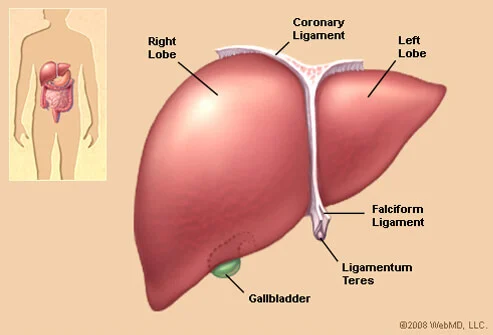By Eriah Lule
The liver is the second largest organ following the skin. It performs several functions like processing the food we take to produce energy and nutrients for the body, it filters harmful substances from the blood like alcohol, and it further helps your body fight off infections.
Your liver works hard to protect your health. It’s a rugged, strong organ, but certain things like alcohol, drugs, viruses and excess weight can damage it.
You may not even realize when your liver is struggling because liver disease usually has no symptoms until the problem becomes severe.
Dr. Donald Mutatina, from Mulago National Referral Hospital and a senior laboratory technician at Chrovia Medical Center, notes that the liver helps us fight infections; it cleans our body by getting rid of our body’s natural waste products and other harmful substances, including alcohol and drugs.
“It also transforms the foods that we eat into energy and nutrients that our bodies use, and it regulates how nutrients flow to different parts of the body when needed,” he said.
The liver can keep working even if part of it is damaged or removed. But if it starts to shut down completely, a condition known as “liver failure” is manifested and symptoms like yellowing of your skin and eyeballs (jaundice), pain in your upper right abdomen, and abdominal swelling, among others, are seen.
Mutatina said that one can survive one or two days unless you get emergency treatment. Many things affect liver function. Some liver problems are inherited from parents, some are caused by viruses, and some are related to our lifestyle, he added.
Certain liver diseases may go away without treatment. Others can cause serious illness in the long run.
Stuart Ngobi, a nurse in Mityana General Hospital, notes that liver failure occurs when your liver isn’t well enough to perform its tasks. It can be a life-threatening emergency that requires immediate medical attention.
According to Ngobi, liver failure occurs either suddenly (acute) or gradually (chronic). For acute cirrhosis, it occurs when the liver cells are significantly damaged and can no longer function.
It occurs rapidly in days or weeks – usually in a person with no liver issues. It’s commonly caused by the hepatitis virus or drugs; it can cause serious complications like excessive bleeding and increasing pressure in the brain. It can, to a small extent, be reversed with treatment, but in most cases, a liver transplant is the only cure.
Mutatina notes that chronic liver failure is a result of long-persisted issues (long-term inflammation) that lead to scarring of liver tissues.
Although chronic liver failure can lead to death if not given medical attention, Liver failure can lead to other body system dysfunctions like kidney failure, heart failure, and brain damage due to increased circulating toxins in the body.
PREVENTION AND TREATMENT
According to Ngobi treatment depends on whether it is acute or chronic, for chronic treatment includes changes to the diet and lifestyle. Avoiding Alcohol and medications that can harm the liver, eating less of red meat, cheese and eggs. Weight loss and control of metabolic risk factors like high blood pressure and diabetes.
According to Mutatina for Acute (sudden) Liver failure treatment includes Intravenous (IV) fluids to maintain blood pressure, medications like laxatives or enemas to help flush toxins (poisons) out of the body. Blood glucose (sugar) monitoring is given to the patient if blood sugar drops.
He further noted taking alcohol in moderation, taking drugs as prescribed, getting vaccinated against Hepatitis will help to keep their liver healthy.


